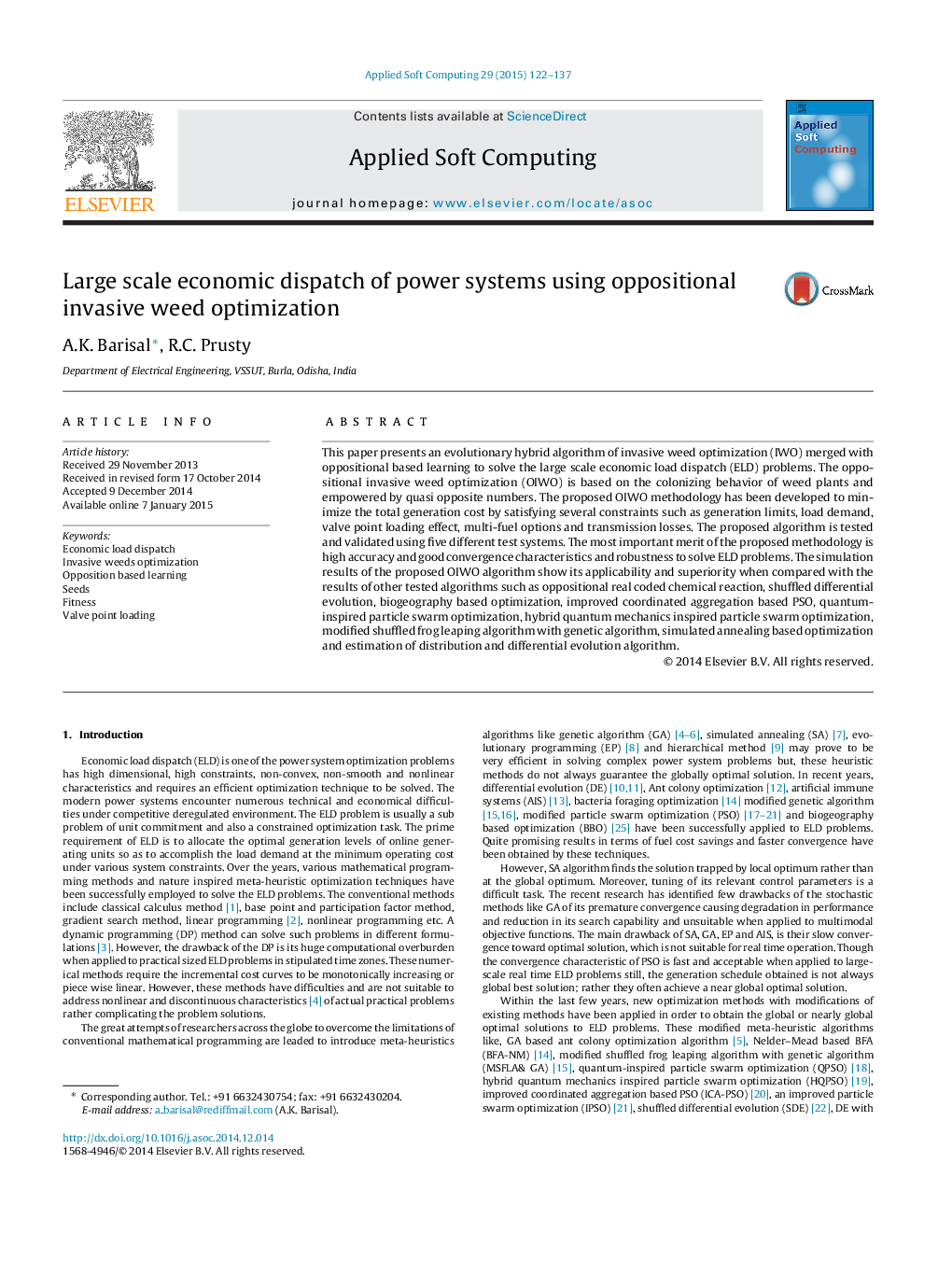| Article ID | Journal | Published Year | Pages | File Type |
|---|---|---|---|---|
| 495233 | Applied Soft Computing | 2015 | 16 Pages |
•Application of invasive weed optimization to economic dispatch problems.•The oppositional based learning is implemented in IWO algorithm.•The merits of proposed methodology are high accuracy and less execution time.•The results of OIWO algorithm show its superiority to other tested techniques.
This paper presents an evolutionary hybrid algorithm of invasive weed optimization (IWO) merged with oppositional based learning to solve the large scale economic load dispatch (ELD) problems. The oppositional invasive weed optimization (OIWO) is based on the colonizing behavior of weed plants and empowered by quasi opposite numbers. The proposed OIWO methodology has been developed to minimize the total generation cost by satisfying several constraints such as generation limits, load demand, valve point loading effect, multi-fuel options and transmission losses. The proposed algorithm is tested and validated using five different test systems. The most important merit of the proposed methodology is high accuracy and good convergence characteristics and robustness to solve ELD problems. The simulation results of the proposed OIWO algorithm show its applicability and superiority when compared with the results of other tested algorithms such as oppositional real coded chemical reaction, shuffled differential evolution, biogeography based optimization, improved coordinated aggregation based PSO, quantum-inspired particle swarm optimization, hybrid quantum mechanics inspired particle swarm optimization, modified shuffled frog leaping algorithm with genetic algorithm, simulated annealing based optimization and estimation of distribution and differential evolution algorithm.
Graphical abstractFigure optionsDownload full-size imageDownload as PowerPoint slide
